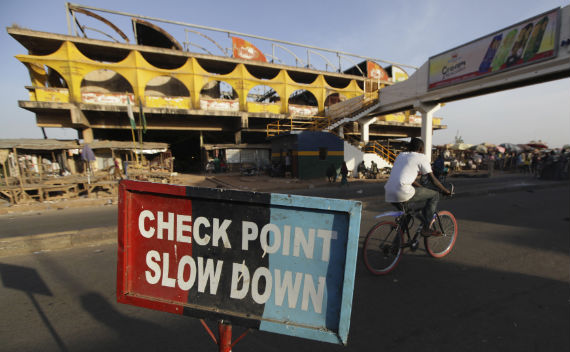In Nigeria’s Plateau State, Christian Muslim Killings Continue
More on:

With the atrocities in Libya dominating today’s news cycle, it is easy to forget the ongoing ethnic and religious murders continuing in Nigeria’s Plateau state, especially in and around the state capital of Jos. An astute American resident who runs a nearby farm reports in her latest letter, published on the Niger Delta Working Group Blog, the nightly killings, the de facto division of Jos into Muslim and Christians parts, and the disruption of commerce.
The situation is actually more frightening than open fighting because every day there are silent killings of individuals, mainly youth, who go into areas of the other faith. Muslim okada riders are killed in Christian areas, and Christian youth (also mainly on motorcycles) are killed in Muslim areas. This happens both at night and during day times. There is incredible bitterness on both sides. A lot of the killing is done between youth who actually know each other and were previously friends before the crisis intervened. Everyone is afraid to move freely around the town, and most people stay in their immediate environment where they have a sense of some security.
Many of the killers and their victims apparently know each other, recalling aspects of the genocide in Rwanda, and revenge has now joined religion and ethnicity as causes of the violence. The Nigerian federal government and the Plateau state government appear impotent, despite the large number of federal troops stationed in the area. It is difficult to predict what might end the vicious cycle, absent forceful federal intervention, such as the declaration of a state of emergency. But President Goodluck Jonathan appears reluctant to take such a step.
More on:
 Online Store
Online Store
